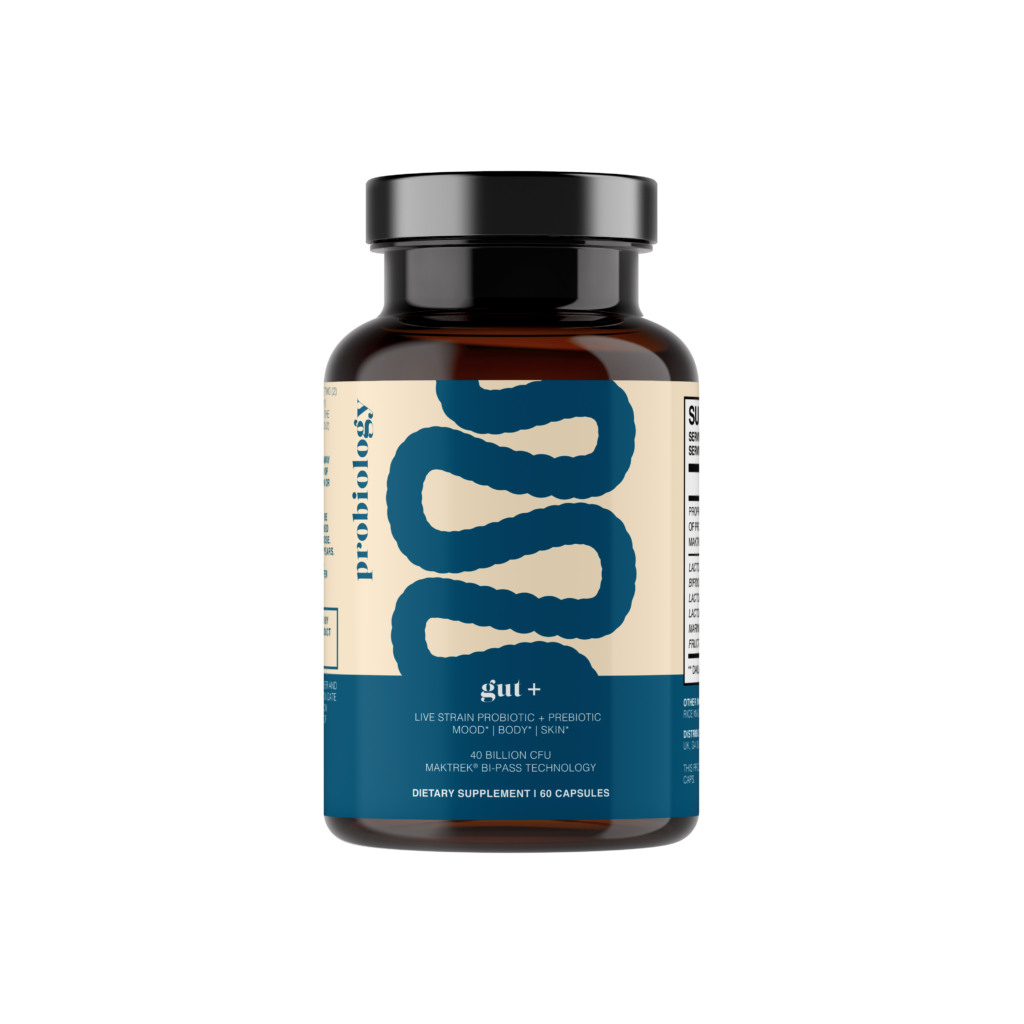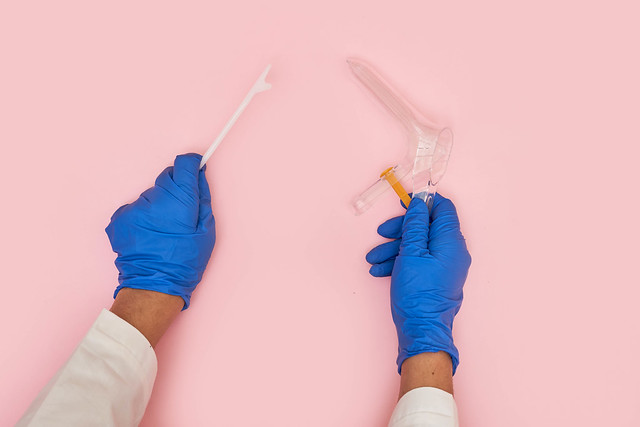Table of Contents
- Do Probiotics Help With Vaginal Health?
- What are some examples of Good Probiotics for Vaginal Health?
- What conditions can be treated with a Vaginal probiotics suppository?
- How can Probiotics be used for Vaginal odor?
- What’s the benefit of Probiotics for vaginal dryness treatment?
- How can Vaginal probiotics be effective for BV treatment?
- What are the Health Benefits of vaginal probiotics?
- How long does it take for vaginal probiotics to work?
- What are some examples of Natural probiotics for vaginal health?
- Is it safe to use Vaginal probiotics during pregnancy?
- Why are Probiotics good for vaginal atrophy?
- Want to know more?
- Sources
Do Probiotics Help With Vaginal Health?
Probiotics help with vaginal health by regulating the balance between good and bad bacteria and providing the vagina with a healthy environment to prevent vaginal infections.
Although many research reports say that probiotics only help in case there’s an issue already present, there’s a significant need for further investigations to support these claims. A review study published in the Journal of Frontiers Cellular and Infection Microbiology in 2022, reiterates the important role of probiotics in women’s health.
What are some examples of Good Probiotics for Vaginal Health?
Some examples of good probiotics strains for vaginal health include the following:
- Lactobacillus rhamnosus GG
- S. Boulardii
- L. acidophilus
- Bifidobacterium
- L. Gasseri
- Bacillus Coagulans
However, you should always consult your doctor first before taking any probiotic supplement so that they can assess which type is best suited for you and decide on the dose.
In the video below, Liz Earle chats to Claire Foss, a registered nutritional therapist, all about probiotics and the role they play in vaginal health.:
This is our recommended Probiotic Supplement for Vaginal Health:

Gut+ from ProBiology (Probiotics + Prebiotics Formula)
What conditions can be treated with a Vaginal probiotics suppository?
A vaginal probiotics suppository can be very effective in treating the following conditions:
- Vaginal odor
- Vaginal dryness
- Bacterial vaginosis
- Enhancing microbial ecosystem
According to a study published in the Journal of Reproductive Biology in 2020, a vaginal probiotic suppository combined with antibiotics showed great improvements in treating Non Dominant Lactobacillus (NLD) patients as opposed to those treated with oral probiotics and antibiotics.
How can Probiotics be used for Vaginal odor?
Probiotics can get rid of vaginal odor in the following ways:
- Promoting the growth of good bacteria
- Eliminating bad bacteria and keeping them at bay
- Reducing the risk of getting urinary tract infections (UTIs)
- Preventing bacterial vaginosis (a condition that causes bad vaginal odor)
- Balancing out good and bad bacteria in the vagina
What’s the benefit of Probiotics for vaginal dryness treatment?
The benefit of probiotics for vaginal dryness treatment is positive due to their ability to regulate hormone levels and balance out good and bad bacteria in the vaginal ecosystem which in turn helps in regulating estrogen levels and preventing infections.
A study published in the Journal of European Review of for Medical and Pharmacological Sciences in 2021, identifies probiotics as having a great impact on women’s hormonal level.
How can Vaginal probiotics be effective for BV treatment?
Vaginal probiotics can be effective for bacterial vaginosis (BV) treatment by regulating the imbalance between good and bad bacteria causing the infection.
According to a very recent study published in the Journal of Reproductive Health in 2022, probiotics are shown to play a positive role in treating bacterial vaginosis (BV). However, the authors of the study also recommend further investigations.
Similarly, another study reiterates the beneficial effect of probiotics in regulating the balance of good and bad bacteria as well as maintaining an acidic environment to ward off BV.
What are the Health Benefits of vaginal probiotics?
There are a lot of health benefits of vaginal probiotics and these include the following:
- Promoting vaginal health
- Fighting off and preventing infections (ex. Candida infections or bacterial vaginosis)
- Balancing out the vaginal ecosystem (good and bad bacteria)
- Maintaining a healthy vaginal pH level
- Preventing inflammation and boosting immune system function
- Alleviating vaginal atrophy
- Treating vaginal dryness
- Eliminating vaginal odors
- Protection against UTIs (urinary tract infections)
However, they also carry minimal side effects which include the following:
- Stomach gas
- Bloating
- Nausea
- Infections
How long does it take for vaginal probiotics to work?
It takes about two months on average for vaginal probiotics to work. Additionally, it’s important to note that this duration can differ from woman to woman depending on several factors which include the following:
- Type of probiotic (natural or supplement/ topical or oral)
- Vaginal disease to be treated
- Dose
- Product quality
So, it’s better to seek the advice of a doctor before initiating treatment and to stick with the prescribed dose. Keep in mind that increasing the dose won’t lead to shortening the duration of treatment.
What are some examples of Natural probiotics for vaginal health?
Examples of natural probiotics for vaginal health include the following:
- Cranberries (for fighting urinary tract infections UTIs)
- Sweet potatoes (to increase fertility)
- Probiotic-rich food like yogurt and kimchi (to prevent yeast infections and regulate PMS symptoms)
- Apples (for orgasms)
- Plant fatty acids like sea buckthorn oil, palmitoleic oil, linoleic and palmitic oil (to improve vaginal dryness and reduce menstrual pains)
- Soy (to help in decreasing estrogen levels and regulating hormone metabolism)
- Avocados (to improve vaginal lubrication and strengthens the vaginal wall)
- Leafy greens (to reduce vaginal dryness)
A review study published in 2008, reveals natural probiotics play a critical role in vaginal protection and prevention of infections owing to their antimicrobial properties.
Is it safe to use Vaginal probiotics during pregnancy?
The use of vaginal probiotics during pregnancy has been deemed safe according to the National Institute of Health as there were no significant reported adverse complications reported.
A study published in the Journal of Canadian Family Physician in 2011, reveals that probiotics are not systemically absorbed by healthy individuals and are suitable for pregnant and breastfeeding women.
Additionally, their beneficial effect has been linked to preventing pre-term birth by restoring normal vaginal flora and preventing inflammatory processes. Nevertheless, this needs further investigation as another study in 2019 proved that oral probiotics taken from early pregnancy didn’t have any effect on vaginal microbiota.
Why are Probiotics good for vaginal atrophy?
Probiotics are good for vaginal atrophy because they treat this condition by promoting good bacteria and altering the vaginal composition which is very beneficial, especially after menopause, and provides the following functions:
- Balances hormones
- Prevents vaginal infections
- Alleviates symptoms of vaginal dryness and atrophy
Similarly, a clinical study published in the Journal of Breast Care in 2017, shows that the oral consumption of Lactobacillus improved the vaginal microbiota in women undergoing chemotherapy for breast cancer.
Want to know more?
Click the links below to access the individual topic pages:
Sources
This article makes use of information from the U.S. National Library of Medicine under the terms of the Creative Commons Attribution 4.0 International License.
- Jones K, Ewigman B. PURLs: Help for recurrent bacterial vaginosis. J Fam Pract. 2011 Feb;60(2):91-3. PMID: 21301645; PMCID: PMC3183959.
- Kadogami D, Nakaoka Y, Morimoto Y. Use of a vaginal probiotic suppository and antibiotics to influence the composition of the endometrial microbiota. Reprod Biol. 2020 Sep;20(3):307-314. DOI: 10.1016/j.repbio.2020.07.001. Epub 2020 Jul 14. PMID: 32680750.
- Chen, R., Li, R., Qing, W. et al. Probiotics are a good choice for the treatment of bacterial vaginosis: a meta-analysis of randomized controlled trial. Reprod Health 19, 137 (2022). https://doi.org/10.1186/s12978-022-01449-z
- Han Y, Ren QL. Does probiotics work for bacterial vaginosis and vulvovaginal candidiasis. Curr Opin Pharmacol. 2021 Dec;61:83-90. DOI: 10.1016/j.coph.2021.09.004. Epub 2021 Oct 11. PMID: 34649216.
- Dover SE, Aroutcheva AA, Faro S, Chikindas ML. NATURAL ANTIMICROBIALS AND THEIR ROLE IN VAGINAL HEALTH: A SHORT REVIEW. Int J Probiotics Prebiotics. 2008;3(4):219-230. PMID: 20657710; PMCID: PMC2908489.
- Elias J, Bozzo P, Einarson A. Are probiotics safe for use during pregnancy and lactation? Can Fam Physician. 2011 Mar;57(3):299-301. PMID: 21402964; PMCID: PMC3056676.
- Nishijima, Koji MD; Shukunami, Ken-ichi MD; Kotsuji, Fumikazu MD, PhD. Probiotics Affects Vaginal Flora in Pregnant Women, Suggesting the Possibility of Preventing Preterm Labor. Journal of Clinical Gastroenterology: May 2005 – Volume 39 – Issue 5 – p 447-448. DOI: 10.1097/01.mcg.0000159269.58480.4b
- DHANASEKAR, K., SHILPA, B., GOMATHY, N., KUNDAVI, S.. Prenatal Probiotics: The Way Forward in Prevention of Preterm Birth. Journal of Clinical Gynecology and Obstetrics, North America, 8, sep. 2019. Available at: <https://www.jcgo.org/index.php/jcgo/article/view/571/371>. Date accessed: 23 Aug. 2022.
- Husain S, Allotey J, Drymoussi Z, Wilks M, Fernandez-Felix BM, Whiley A, Dodds J, Thangaratinam S, McCourt C, Prosdocimi EM, Wade WG, de Tejada BM, Zamora J, Khan K, Millar M. Effects of oral probiotic supplements on vaginal microbiota during pregnancy: a randomised, double-blind, placebo-controlled trial with microbiome analysis. BJOG. 2020 Jan;127(2):275-284. DOI: 10.1111/1471-0528.15675. Epub 2019 Apr 1. PMID: 30932317; PMCID: PMC6973149.
- Kim JM, Park YJ. Probiotics in the Prevention and Treatment of Postmenopausal Vaginal Infections: Review Article. J Menopausal Med. 2017 Dec;23(3):139-145. DOI: 10.6118/jmm.2017.23.3.139. Epub 2017 Dec 29. PMID: 29354612; PMCID: PMC5770522.
- Marschalek J, Farr A, Marschalek M, -L, Domig K, J, Kneifel W, Singer C, F, Kiss H, Petricevic L: Influence of Orally Administered Probiotic Lactobacillus Strains on Vaginal Microbiota in Women with Breast Cancer during Chemotherapy: A Randomized Placebo-Controlled Double-Blinded Pilot Study. Breast Care 2017;12:335-339. DOI: 10.1159/000478994


